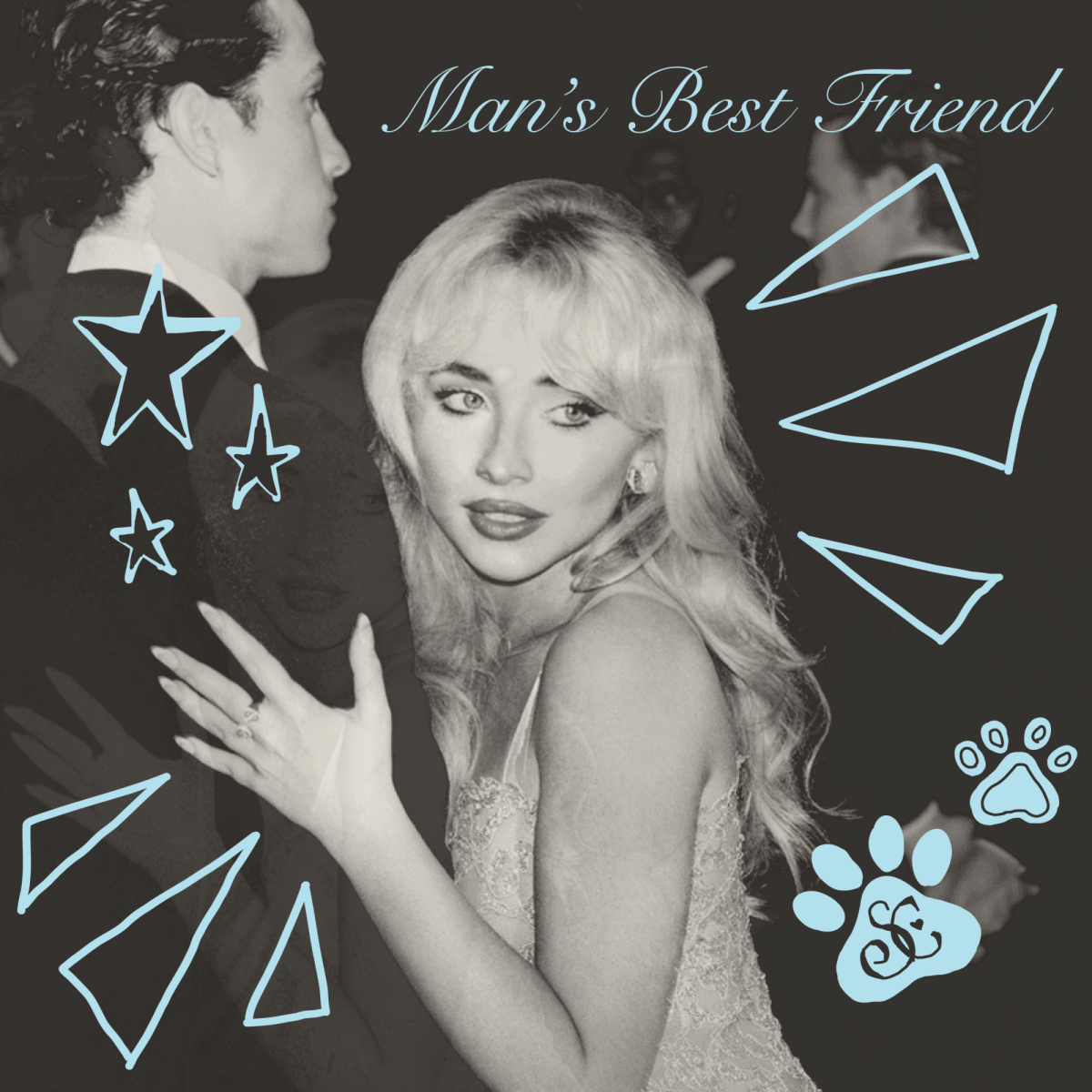After reaching new heights in her career last year with her Grammy Award-winning album “Short n’ Sweet,” Sabrina Carpenter released her latest project, “Man’s Best Friend,” on Aug. 29.
Despite being her seventh studio album, Carpenter considers the project to be her third “big-girl album” with full creative license. Her first four albums were released under a creatively restrictive deal with Hollywood Records, a Disney-owned label, between 2015 and 2019.
Upon the release of the album’s lead single and opening track, “Manchild,” the album quickly got branded as a rehash of “Short n’ Sweet,” with good reason. Carpenter reunited with songwriter Amy Allen, who co-wrote “Short n’ Sweet” and “Man’s Best Friend,” to write playful lyrics such as, “Why so sexy if so dumb? / And how survive the Earth so long? / If I’m not there, it won’t get done / I choose to blame your mom.” Unlike other pop artists who would approach the topic more seriously, Carpenter is poking fun at a failed relationship, a recurring theme for both “Short n’ Sweet” and “Man’s Best Friend.”
From a production standpoint, the twangy-pop production of “Manchild” mirrors that of the “Short n’ Sweet” single “Please Please Please,” which is likely tied to the return of producers Jack Antonoff and John Ryan, who produced most of Carpenter’s two most recent albums.
Despite only featuring the work of two producers, “Man’s Best Friend” manages to keep from sounding too repetitive by using influences from various genres and decades. The producers include similar elements of synth-pop throughout the album, helping the sound remain cohesive.
One clear example of this is the third track, “My Man on Willpower,” which Carpenter named as her favorite song off the album at the premiere of the music video for the single “Tears.”
Antonoff and Ryan come together to create a distinct ‘70s disco sound, which contrasts lyrics in Carpenter’s now signature style about a man losing interest in their relationship, singing, “My man’s in touch with his emotions / My man won’t touch me with a twenty-foot pole.”
The album changes course both sonically and lyrically with the eighth track, “When Did You Get Hot?” The track leans more into the R&B pop sound from the late ‘90s and early 2000s with underlying synths, weaving through the whole album.
Carpenter also shifts away from talking about relationships to being attracted to someone who, as the title suggests, only recently got hot. Carpenter sings, “Take me to naked Twister back at your place” and “Congratulations on your new improvements / I bet your light rod’s, like, bigger than Zeus’s.” Delivered in a lower, more breathy tone, the song is a little more overtly sexual than other songs on the album while still being lighthearted.
While Carpenter uses some similar production and lyrical choices as her past projects, “Man’s Best Friend” stands out in her discography as an exploration of relationships and genre with a distinct, yet connected sound.

